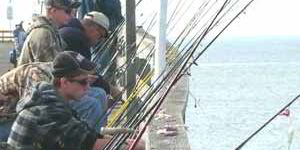
One reason only? Doesn’t sending a message to investors qualify?
(Bugbee backs up words with action in $1m stock buy)
“This is a case that Klaveness would very much like to have been without, and the company is accordingly pleased that it is now closed.”
Bjorn Stordrange can say that again. Seems that something that is not illegal can be rather costly in Norway.
“The vessel was actually outside port and, apparently, the parties that actually effected the arrest failed to organise a launch to take the court marshal out to sea. So in actual fact, the vessel never knew about the arrest and the vessel was never notified about the arrest.”
Maltese lawyer, Ann Fenech, explains how an aframax tanker came to break arrest.
(Owner of Atlantik says no arrest order was served)
“If you can’t find a ship to arrest because it is trading in an area where it is simply not possible to arrest it, or you do not want to arrest it because you do not want to do litigation in that area, and you know they are trying to sell the ship, basically this is one of the few remedies that you have available.”
Panamanian lawyer, Eduardo Real, argues that freezing title and registration changes is an effective alternative to conventional ship arrests.
(If you can’t arrest a ship try the flag)
“There is no uniformity, and I wonder if carriers or their protection-and-indemnity (P&I) clubs have any idea how much in legal fees they incur with every cargo claim, while their advisers and lawyers seek to unravel which of the many available regimes apply to the particular claim.”
Is Stuart Hetherington suggesting it is time for a long critical look at litigation costs?
(Time for industry to take charge of new cargo rules)
“It is going to be economical and it is going to have first-rate arbitrators.”
Iria Barrancos suggests it is time to start forming an orderly queue for disputes to be resolved by Panama’s new Centre for Maritime Conciliation, Mediation and Arbitration.
(Panama poised to launch dispute resolution centre)

No nonsense about the lonely sea and the sky from John Denholm even though his firm dates back to the days of tall ships.
“Over the last few years, we have used price too often to fill our ships.”
Guess Carnival executive David Dingle is suggesting that it is time to rely on very well known brands such as Costa Crociere?
(UK cruise market sees uptick but destination hurdles remain)
“We respectfully request that the records and results of the unannounced inspections be made public and easily available over the internet for prospective cruise passengers to peruse before booking a trip. ... the exposure of deficiencies will provide an added level of protection for the safety of cruise passengers.”
Senators John D Rockefeller, Richard Blumenthal and Edward Markey want the US Coast Guard to put the outcome of cruiseship safety inspections on the web.
(Senators call for transparency on cruise safety)
“A shipyard is not a business of high profits. Shipyards are businesses of marginal profits.”
But not such a marginal business proposition to stop Marvin Castillo re-opening a Port of Balboa repair dock.
(Vessels stream back into historic shiprepair facility)
“We are going in the direction of being more international. But we don’t have a strategy of rapid expansion. We go slowly and surely on a good financial background, not taking risks.”
Caution rules as chief executive Georg Scheel looks forward to Nordisk’s next 25 years.
(Nordisk Defence Club looks to Far East for controlled expansion)
“It is not the attritional but the bigger claims that affect whether we are going to have a bad, good or average year. It’s the difference between three to four claims on average of $3m or so, or getting six or seven.”
The UK Club’s Hugo Wynn-Williams explains why a small number of major claims are critical to profitability.
(UK Club reserves pass $500m after ‘tremendous’ year)
“Some years we have a lot of large claims and some years very few. Large claims by their nature are random with a degree of luck involved. The important message is that attritional claims are falling.”
And Jo Rodgers of the Britannia Club agrees on what makes the difference.
(Back in black despite 40 fat claims)
“There is a danger we are being driven far too much by the rating agencies but I am afraid that is the reality.”
The Britannia Club’s Grantley Berkeley faces up to a cold commercial fact.

“With numerous owner operators all fishing in the same pool, each is finding it tough to fill vacancies. There are now so many employers on the island that poaching is rife and competition for staff is never ending.”
But not so tough for maritime recruiter Matt Cornelius.



